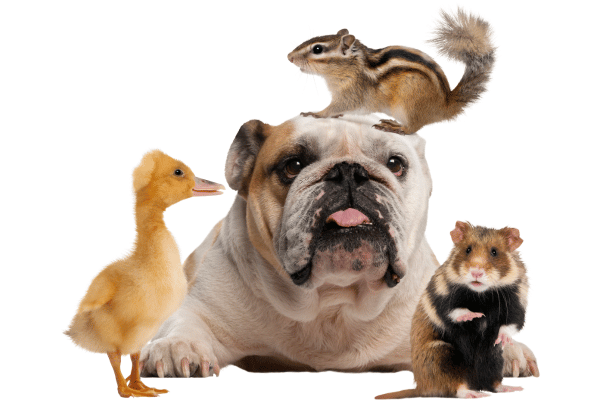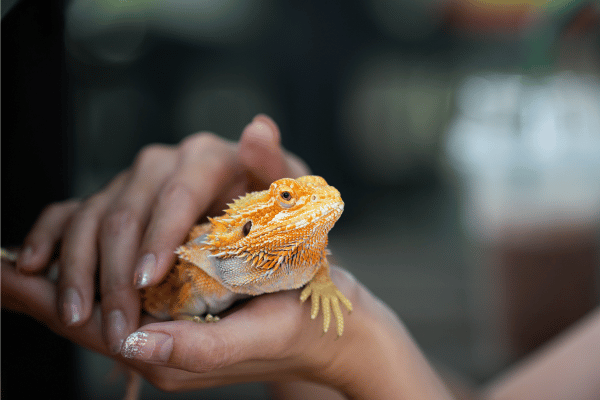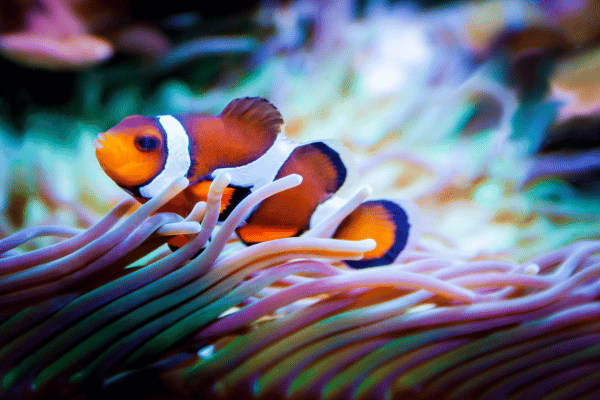Exploring the unique journey of pet ownership, this article delves into the differences between conventional and unconventional pets, offering insights for those considering adding a four-legged friend to their home.
Understanding Pet Ownership Types

Embracing pet ownership brings joy and companionship, yet the choice between conventional and unconventional pets can significantly impact your lifestyle. Traditional pets, like dogs and cats, blend seamlessly into family life, offering predictable behaviors and care routines. However, their needs for space, exercise, and social interaction necessitate a committed approach from owners.
Conversely, unconventional pets, such as reptiles or exotic birds, introduce a unique allure with their distinct characteristics and care requirements. These pets often require specialized habitats and diets, fostering a learning journey for owners. While they may lack the cuddliness of conventional pets, they offer a window into the diverse world of animal companionship.
Ultimately, the choice hinges on aligning your lifestyle, space, and commitment level with the needs of your potential pet. Whether you lean towards the familiarity of conventional pets or the intrigue of unconventional ones, understanding their needs is paramount. This knowledge ensures a harmonious relationship, enriching the lives of both pet and owner.
Caring for Unconventional Companions
Navigating the care for unconventional pets demands a tailored approach, diverging from the norms of dog or cat ownership. These creatures often necessitate specific environmental conditions to thrive, from temperature-controlled terrariums for reptiles to spacious cages for exotic birds. Such dedication to their well-being highlights the intricate bond between these pets and their caregivers.
The diet of unconventional pets also underscores their distinct nature. Whether it’s the precise nutritional mix for a sugar glider or the live feed for a tarantula, understanding and providing for their dietary needs is a cornerstone of their care. This aspect of pet ownership invites an educational journey, enriching the experience with each discovery.
Engaging with unconventional pets also offers a unique perspective on animal behavior and welfare. Observing the natural habits and preferences of these animals fosters a deep appreciation for biodiversity, encouraging a broader understanding of the animal kingdom. Thus, the choice of an unconventional pet can transform into a rewarding venture into wildlife conservation and education.
Subtítulo with Keyword: Conventional vs. Unconventional Pet Benefits
Delving into the benefits, conventional pets like dogs and cats often provide unparalleled emotional support and companionship. Their capacity for affection and their attunement to human emotions make them ideal confidantes and family members. The routine of caring for these pets, from daily walks to feeding schedules, also instills a sense of responsibility and structure in an owner’s life.
On the flip side, unconventional pets offer a unique avenue for education and conservation awareness. Caring for an exotic animal can be a doorway to learning about its natural habitat, behaviors, and the ecological challenges its species may face. This deeper understanding can inspire a commitment to wildlife conservation and a greater appreciation for the natural world.
Moreover, unconventional pets can be a perfect match for individuals with specific lifestyle constraints or allergies that make traditional pet ownership challenging. These pets can provide companionship without the same space or outdoor access requirements, fitting seamlessly into a variety of living situations and catering to diverse needs and interests.
Health Considerations for All Pets

Regardless of whether your pet is conventional or unconventional, their health remains a paramount concern. For dogs and cats, regular vet check-ups, vaccinations, and preventive treatments form the cornerstone of a healthy life. These practices help mitigate common health issues and ensure your furry friends lead a long, vibrant life.
Unconventional pets, with their unique anatomies and physiologies, often require specialized veterinary care. Finding a vet experienced in treating exotic animals is crucial, as their health issues can be vastly different from those of dogs and cats. Regular health assessments and tailored care are essential to address the specific needs of these unique pets.
Beyond medical care, the mental well-being of your pet is equally important. Ensuring they have a stimulating environment, whether through interactive toys for cats and dogs or complex habitats for exotic pets, supports their cognitive health. This holistic approach to pet care fosters a nurturing environment for all pets, irrespective of their conventionality.
Social Impact of Pet Choices
The decision between conventional and unconventional pets extends beyond personal preference, reflecting on broader social dynamics. Dogs and cats, with their long history of domestication, often serve as social catalysts, fostering interactions and friendships among pet owners. Their presence can enhance social networks and community bonds, contributing to a more interconnected society.
Unconventional pets, while perhaps less common in social settings, can still play a significant role in community engagement. Owners of exotic pets often find camaraderie in niche groups or online communities, sharing care tips and experiences. These specialized forums not only offer support but also spread awareness about the species and their needs.
Additionally, the choice of an unconventional pet can spark curiosity and dialogue, promoting education about biodiversity and conservation. Such interactions can demystify misconceptions about exotic animals, fostering a more inclusive understanding of the animal kingdom. Hence, both conventional and unconventional pets contribute to the social fabric in distinct yet meaningful ways.
Legal and Ethical Considerations
Owning an unconventional pet often involves navigating a complex web of legal and ethical considerations. Many regions have strict regulations governing the ownership of exotic animals, aimed at protecting both the animals and the community. It’s crucial for potential owners to research and comply with these laws, ensuring their pet ownership is both responsible and lawful.
Ethical considerations also play a significant role, especially with unconventional pets. The welfare of the animal, its conservation status, and the implications of its removal from the wild are all factors to consider. Responsible pet ownership means prioritizing the well-being of the animal and contributing to the preservation of its species.
For conventional pets like dogs and cats, ethical considerations may include ensuring they are obtained from reputable sources that prioritize the animals’ health and well-being. It also involves making a lifelong commitment to care for the pet, understanding the responsibilities that come with pet ownership.
Integrating Pets into Family Life

Integrating a pet into your family, whether conventional or unconventional, requires thoughtful preparation and adaptation. For dogs and cats, this might mean setting routines for feeding, exercise, and training, ensuring they become well-adjusted family members. Their ability to interact and form bonds with all family members can enhance the household’s overall harmony.
When it comes to unconventional pets, integration can be more about creating a suitable environment within the home that mimics their natural habitat. This might involve specialized enclosures for reptiles or secure spaces for birds, ensuring their physical and psychological needs are met. Educating family members about the pet’s specific needs and behaviors is crucial for a harmonious coexistence.
The process of integrating any pet into family life also involves teaching children about respect, empathy, and care for living beings. Pets, regardless of their type, can provide invaluable lessons in responsibility and compassion, enriching the familial experience and fostering a nurturing environment for all.
Subtítulo with Keyword: Conventional vs. Unconventional Pets’ Impact
The impact of choosing between conventional and unconventional pets extends beyond personal lifestyle to influence environmental and ecological considerations. Traditional pets like dogs and cats have a well-established place in human society, with clear guidelines for their care, health, and environmental footprint. Their widespread acceptance makes resources and information readily available, easing their integration into various lifestyles.
Unconventional pets, however, bring a different set of impacts. The exotic pet trade can have significant ecological repercussions, including species depletion and habitat disruption. Ethical ownership of such pets requires a deep commitment to understanding and mitigating these impacts, ensuring that the fascination with exotic animals does not contribute to ecological harm.
On a more positive note, responsible ownership of unconventional pets can also lead to conservation awareness and education. By understanding the needs and origins of these animals, owners can become advocates for their preservation and protection in the wild, highlighting the interconnectedness of pet ownership and environmental stewardship.
The Joy and Challenges of Pet Ownership
The journey of pet ownership, whether with conventional or unconventional animals, is filled with both joy and challenges. The companionship and unconditional love offered by dogs and cats provide profound emotional benefits, reinforcing their status as beloved family members. These pets often become our confidants, exercise partners, and sources of comfort during difficult times.
Conversely, unconventional pets introduce their owners to the fascinating diversity of the animal kingdom, offering unique interactions and learning opportunities. However, their care often requires more specialized knowledge and resources, presenting a set of challenges that are distinct from those associated with traditional pets. The commitment to providing the right environment, diet, and stimulation for these animals can be a rewarding yet demanding endeavor.
Regardless of the type of pet, the responsibility of ownership demands time, financial resources, and emotional investment. Each pet, with its specific needs and characteristics, brings a unique set of rewards and challenges to the table, enriching the lives of their owners in myriad ways. Embracing these experiences fully can lead to a deeper understanding and appreciation of the natural world and the diverse creatures that inhabit it.
Making the Right Choice for You
Deciding between a conventional or unconventional pet requires careful consideration of your lifestyle, resources, and long-term commitment. For those who enjoy outdoor activities and have ample time for interaction, dogs might be the perfect companions. Their need for exercise and social interaction aligns well with active lifestyles, creating a mutually beneficial relationship.
If you’re intrigued by the unique and the exotic, unconventional pets can be a fascinating choice, offering a glimpse into the less familiar realms of the animal kingdom. However, this path demands a readiness to engage with the specific care requirements and challenges these pets present, from specialized diets to unique environmental needs.
Ultimately, the key to a fulfilling pet ownership experience lies in matching your pet’s needs with your ability to meet them. Whether you choose the comforting presence of a conventional pet or the intriguing world of unconventional animals, ensuring you can provide a loving and suitable home is paramount. This thoughtful approach ensures a rewarding and enriching journey for both you and your chosen companion.
Embracing the Journey of Pet Ownership
The journey of pet ownership, whether paved with the paw prints of conventional pets or the unique footprints of their unconventional counterparts, is a deeply rewarding voyage. It’s a path filled with learning, growth, and the irreplaceable joy of companionship. As we’ve explored, each choice comes with its own set of joys and challenges, from the comforting routine of a dog’s walk to the intriguing care of a reptile. The key lies in understanding and embracing these differences, ensuring a harmonious match between the needs of our pets and our capabilities as caretakers.
The decision between conventional and unconventional pets is more than just a matter of preference; it’s a commitment to becoming a responsible and loving guardian. It’s about creating a nurturing environment where the well-being of our pets is paramount, irrespective of their species. This commitment not only enriches our lives but also fosters a deeper appreciation for the diversity of life and the responsibilities we share towards it.
As we conclude, I encourage you to delve deeper into understanding the unique needs and joys of your current or future pet. Whether you’re drawn to the familiar comfort of a cat’s purr or the exotic allure of a parrot’s chatter, remember that your journey with them is a shared one. Let’s continue to learn, share, and grow in this journey of pet ownership. For more insights and guidance, feel free to explore further articles on our site or leave your thoughts and experiences in the comments below. Together, let’s make the world a better place for all our animal companions.
You can find a comprehensive guide on pets, including tips, care, and advice, on Pets Guide. This website offers a variety of information that could be beneficial for both conventional and unconventional pet owners. For more detailed insights, you can visit their website at petsguide.us.

Join Marjorie Pearson at dwfocus.com, your guide in the pet parenting world. As an experienced animal behaviorist, Marjorie offers heartfelt advice for pet owners. Her expertise spans from nurturing kittens to understanding dogs’ playful antics. She’s passionate about enhancing the bond between pets and their humans through understanding and empathy. Discover Marjorie’s practical training tips and insights on dwfocus.com, enriching your journey as a pet owner. #4PawsAndOwners #MarjorieEarsonPetWhisperer #dwfocus







